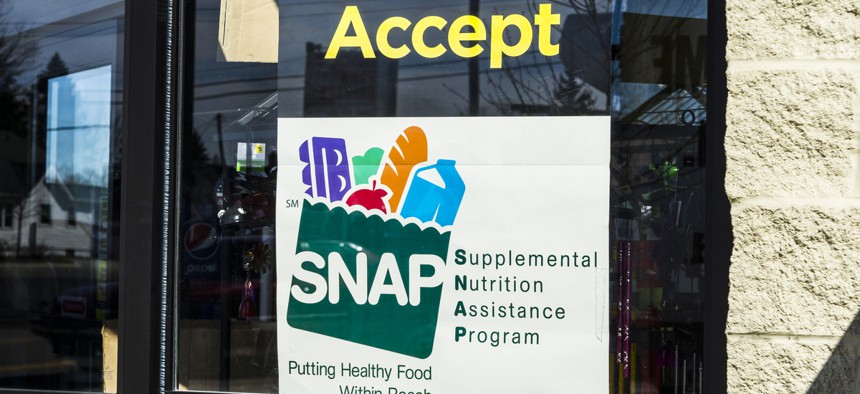Federal Judge Rejects Work Requirement Changes in Food Stamp Program

Shutterstock/Jonathan Weiss
Nineteen states and Washington, D.C., had filed a lawsuit challenging the USDA's changes to food assistance, which would have cut 700,000 adults from the program.
A federal judge on Sunday struck down a Trump administration rule to limit states’ ability to waive work requirements for food stamps, which would have resulted in 700,000 people losing benefits.
“Despite the agency’s blinkered effort to downplay or disregard the predicted outcomes of the Final Rule, the backdrop of the pandemic has provided, in stark relief, its procedural and substantive flaws,” wrote Chief Judge Beryl A. Howell of the U.S. District Court for the District of Columbia.
The work requirement change was one of three proposals to the Supplemental Nutrition Assistance Program the U.S. Department of Agriculture considered last year. It was the only one finalized by the Trump administration before the coronavirus pandemic began in March, leaving millions of people out of work and driving many more families and individuals to sign up for SNAP benefits.
The rule would have affected childless adults younger than 50 who aren’t disabled. Under federal requirements, these food stamp recipients are capped at three months of benefits during a three-year period, unless they work at least 80 hours a month. But states historically have been able to waive the work requirement if there is high unemployment or limited jobs available in their communities.
The new Trump rule would have curbed that state flexibility, prompting 19 states and the District of Columbia to file a lawsuit.
Howell wrote that the rule “radically and abruptly alters decades of regulatory practice, leaving States scrambling and exponentially increasing food insecurity for tens of thousands of Americans.” The judge criticized the USDA as being “icily silent” about how many recipients would have lost SNAP benefits even as the economic repercussions of the pandemic are still being felt around the country, and ultimately concluded the agency didn’t sufficiently justify its changes.
The judge had previously blocked the rule from going into effect in March, issuing a temporary restraining order because of the pandemic. The USDA appealed that decision, which is still pending. Congress also suspended the new time limitations from going into effect earlier this year, although that will end a month after the federal government declares an end to the current public health emergency.
In May, when the agency announced it would appeal, the USDA emphasized in a statement that it had loosened current requirements to make sure people affected by the pandemic could get food assistance.
“America’s best days are ahead and we must prepare our workforce to rejoin the economy when our nation reopens,” USDA said at that time. “When America goes back to work, we must be ready to engage our able-bodied SNAP participants so they may achieve meaningful and lasting employment too.”
Laura Maggi is the managing editor of Route Fifty.
NEXT STORY: Rural health cooperatives are challenged by connectivity and social distancing – but are innovating






